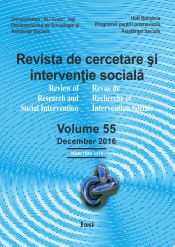CHARISMATIC LEADERSHIP BEHAVIOR AND LEADERSHIP EFFECTIVENESS: THE MODERATING ROLE OF SUBORDINATES’ EMOTIONAL INTELLIGENCE AND THE MEDIATING ROLE OF PSYCHOLOGICAL
EMPOWERMENT
CHARISMATIC LEADERSHIP BEHAVIOR AND LEADERSHIP EFFECTIVENESS: THE MODERATING ROLE OF SUBORDINATES’ EMOTIONAL INTELLIGENCE AND THE MEDIATING ROLE OF PSYCHOLOGICAL
EMPOWERMENT
Author(s): Zaoli Yang, Jida ZhuSubject(s): Behaviorism, Socio-Economic Research
Published by: Expert Projects Publishing
Keywords: charismatic leadership behavior; leadership effectiveness; subordinates’ emotional intelligence; psychological empowerment;
Summary/Abstract: Theoretical research and practical cases have found that companies tend to use business leaders’ charismatic leadership behavior to promote business change and innovation. However, enterprise operating results indicate that there are great differences in the improvement effect of charismatic leadership behavior on leadership effectiveness among different enterprises. From the view of the internal psychological factors of employees, we designed a hypothesis model of the influence of charismatic leadership behavior on leadership effectiveness, by introducing the concepts of psychological empowerment and emotional intelligence of employees, to deeply explore the influence mechanism of charismatic leadership behavior on leadership effectiveness using the survey data of 207 private enterprises in China gathered from October 2015 to March 2016. Results show that the more prominent the charismatic leadership behavior, the higher the enhancement of leadership effectiveness. While the enhancement of leadership effectiveness relies on the promotion of organizational cohesion and leading character perception of employees as well as other psychological empowerment factors. Additionally, subordinates with high emotional intelligence and subordinates with low emotional intelligence are both able to significantly affect the relationship between charismatic leadership behavior and leadership effectiveness, but subordinates with high emotional intelligence are more easily able to promote job performance and job satisfaction through charismatic leadership behavior. Subordinates with low emotional intelligence, on the other hand, are more conducive to the enhancement of organizational citizenship behavior through charismatic leadership behavior.
Journal: Revista de Cercetare şi Intervenţie Socială
- Issue Year: 2016
- Issue No: 55
- Page Range: 158-184
- Page Count: 28
- Language: English

